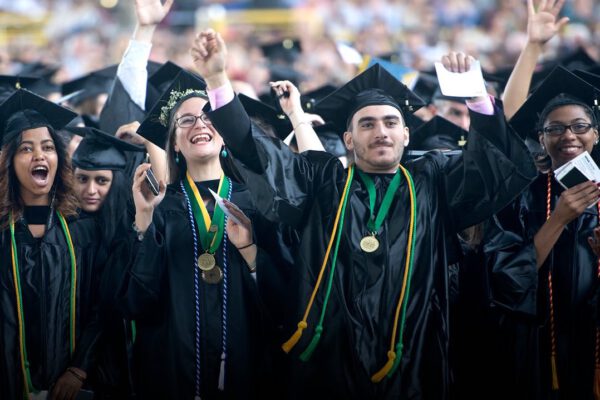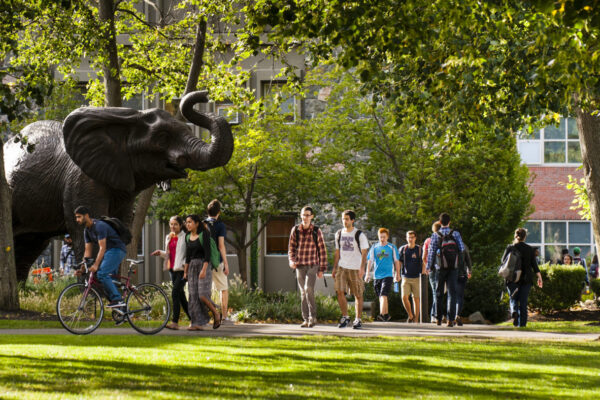How Are Universities Responding to the Changing U.S. Workforce?
Title: Building a future workforce for all learners: How public and land-grant universities and urban serving universities drive innovative solutions
Author: Andréa Rodriguez, Sheila A. Martin, and Bernard Mair
Source: Association of Public and Land Grant Universities and Coalition of Urban Serving Universities
As the pressure on higher education to adapt to needs of students in the 21st century, new models for educating are being tested in collaboration with institutions and the broader workforce. A recent report from the Association of Public and Land Grant Universities and the Coalition of Urban Serving Universities examines the importance of innovative partnerships and new approaches to education—opening the door for upward social mobility, increased income, and opportunities for advancement in the workforce for all students.
The report cites three major trends and calls on universities to adapt accordingly to improve access and completion in an increasingly competitive economy:
A rapidly changing economy generating vast training needs. The report notes that only 58 percent of workers are likely to return to their pre-COVID-19 jobs, highlighting the gap in skills, credentials, and education that existed pre-pandemic. A major challenge exists in employers expecting various levels of worker preparation with few direct avenues for learners to access such programs for skill development. In today’s labor market, higher education must adapt to provide opportunities for upskilling.
The shifting demographics and needs of students. The definition of “student” continues to evolve, with learners now skewing older, lower-income, and more likely to be employed. The changing student population requires less time-intensive credentials along with alternative and flexible pathways.
A growing demand for 21st century skills. The need for learners to show skills that are clearly beneficial to employers and allow room for adaptability and growth continues to be top of mind in the workforce. This report cites a recent Burning Glass report highlighting the three foundational skills needed to maintain long-term employability: human skills, business-enabler skills, and digital building block skills.
Beyond these trends, the report also highlights mechanisms for meeting challenges and provides institutional examples for effective adaptation:
- Developing new partnerships between higher education and workforce stakeholders.
- Designing higher education programs for flexibility, including responsive pathways and flexible delivery, credit for prior learning, and alignment with graduate degrees.
- Using evidence-based, high-impact practices to ensure innovation, including opportunities for experiential learning, skill transparency, and personalized learning.
To read the full report, click here.
—Ben Cecil
If you have any questions or comments about this blog post, please contact us.


